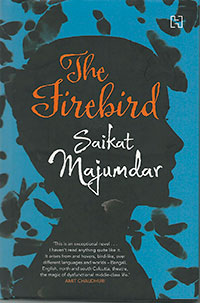
Books


“Journeys Home: Inspiring Stories, Plus Tips & Strategies to Find Your Family Home” (288 pages; $26); published by National Geographic (www.nationalgeographic.com/books)
As the foreword articulates, “Heritage has a powerful pull on those of us who live in immigrant countries, missing as we are the sense of connection to place and community that our ancestors took for granted. Although we may never have been there, the attraction of returning to an older place, one that we may know about only through vague family reminiscences, can be intense.” And so it is that 26 renowned writers, including one of our favorites, Pico Iyer, returns to India, where at one time in his life he seemed to have no connection. In the “An Indian Summer: From revolution to revelation chapter,” the travel writer notes that when he visited India at age 17, he toured all over: Secunderabad, Bangalore, Madras, Agra, etc. “It was a trip full of wonders – humans, if not cultural – if only I’d been in a mood to admit it,” he pens. On subsequent trips, Iyer admits he realized the sheltered life he had led during his trip as a teenager. “My trip to a home I couldn’t quite call home had given me uncles and grandmothers and cousins and aunts. But it had also, quite unexpectedly, given me parents and a sense of how much their homes, on both sides of the world, would always be mine.” Other touching and evocatively illustrated stories in the book take you on a journey to Ireland, Angola, Cuba, England, Germany, Japan, Norway, Russia, Scotland, Tanzania, and others.
 “The Firebird” (184 pages; Kindle edition $4.99) by Saikat Majumdar; published by Hachette India (www.hachetteindia.com)
“The Firebird” (184 pages; Kindle edition $4.99) by Saikat Majumdar; published by Hachette India (www.hachetteindia.com)
This is a bold attempt by a brave author of a previous novel “Silverfish.” The resident of San Francisco who teaches world literature at Stanford University tells us a truly endearing story of Oritra from 9 to 13 years of age. It is set in the mid-1980s in Kolkata during the height of the Communist Party with political bullies, hairdressers, set boys, backstage crew and an eccentric play director thrown into the mix. His mother Garima is a stage show actress who doesn’t devote much time to Ori because of the demands of her profession. “Bright-lit evenings and the warm, perfumed smell of greenrooms and the rowdy energy of men and women whose limbs swam in the lilt of music,” Majumdar writes beautifully about her absence. “It created bitterness at home, great dark swathes of it.” No wonder, the little boy finds some solace in his grandmother Mummum and cousin Shruti, who ultimately and unfortunately becomes a victim of the stage. And so does his mother. “The hair, the flowers and the joss sticks planted around her,” notes Majumdar on the eve of Garima’s tragic but almost foreseen death. “White flowers, jasmine, tube roses. Evening bloomers all, cold, moist and graceful, flowers that seemed to melt into her pale, bloodless skin. More and more flowers crowded around her like quite mourners.” “The Firebird” is a touching and vivid story narrated exceptionally by a talented author from whom, we hope, we are gifted with more such gems.